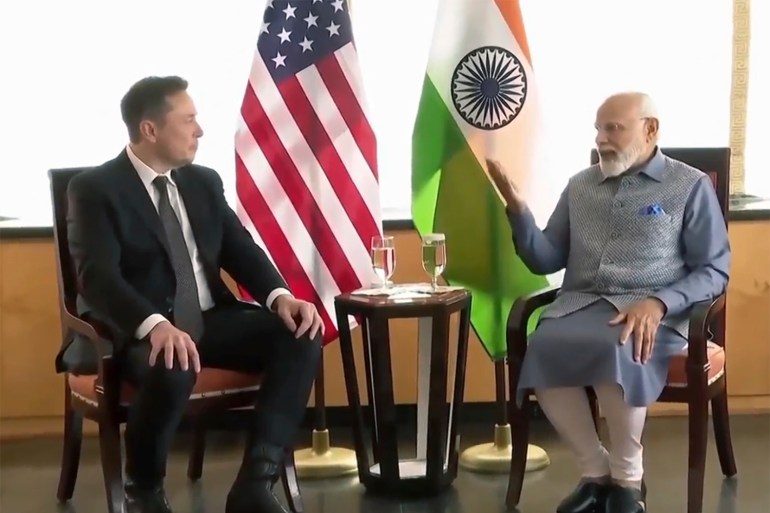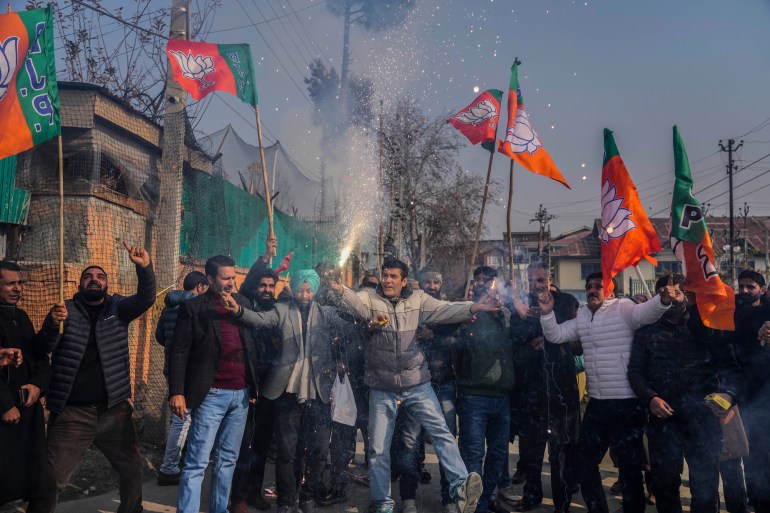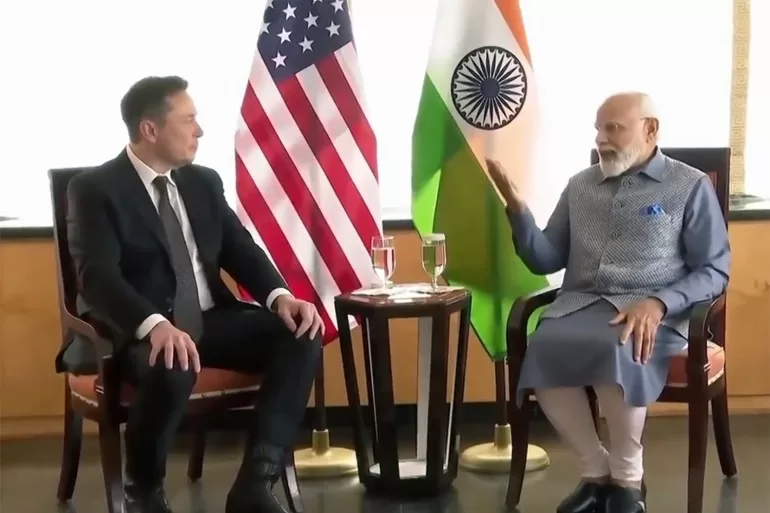The website of India Hate Lab, another initiative dedicated to exclusively tracking hate speech in the country, can also no longer be accessed in India even though both platforms are available outside the country.
“We received communication from MEITY (Ministry of Electronics and Information Technology) under the IT Act last week regarding the potential blocking of India Hate Lab and Hindutva Watch,” Raqib Hameed Naik, the founder of both projects, told Al Jazeera, referring to India’s Information Technology (IT) Act.
On January 29, Naik was informed by users in India that both websites had become inaccessible on multiple servers, he said. “Currently, I am exploring legal options,” Naik added.
The government issued notices for blocking the websites under section 69A of the controversial IT Act, which empowers authorities to prevent the public from accessing information citing the “interest of sovereignty, integrity, and security” of India. The Supreme Court of India in 2022 had struck down another section of the IT Act that allowed the government to prosecute people for sending “offensive” messages online – multiple governments, across political parties, had used that section to arrest everyday civilian critics, from a cartoonist to a chemistry teacher.
Al Jazeera reached out to India’s IT ministry for comments but has not yet received a response.
Naik, a Kashmiri journalist living in the US since 2020, launched the Hindutva Watch website in April 2021. He is joined by 12 volunteers, spread across five countries, who work through different time zones to keep up with the documentation of rising hate crimes in India.
Since its launch, Hindutva Watch has grown into a rare database that documents hate speech and violence against India’s religious minorities, which have escalated everywhere from major cities to smaller towns, yet often receive little mainstream press coverage in the country or outside it. The project has been documenting two to four hate events daily, nearly double the number of reported incidents from a year ago.
Its critics, however, accuse Hindutva Watch, Naik and their coverage of being driven by a bias against Indian Prime Minister Narendra Modi’s Bharatiya Janata Party (BJP) and its political ideology, called Hindutva.

Censorship fears
The blocking of the websites comes two weeks after X – formerly known as Twitter – withheld the account of Hindutva Watch in India on January 16, following the government’s order under the IT Act. The X account of India Hate Lab was still accessible in India as of Wednesday morning.
“While shocking, it’s not surprising, considering Prime Minister Modi regime’s history of suppressing free press & critical voices,” Naik wrote on X on January 16, reacting to the ban. “The suppression of our account in India only fuels our determination to continue our work undeterred.”
Critics of the government have pointed to a growing climate of censorship involving X accounts in India since the platform was taken over by billionaire Elon Musk in November 2022. Last year, the company also withheld the accounts of US-based human rights groups – the Indian American Muslim Council and Hindus for Human Rights in India – in response to legal demands by the Modi government.
“Not only is the Indian state rewriting history, the government does not want information, or any kind of documentation, of violence against minority groups,” said Suchitra Vijayan, an author and founder of The Polis Project, a New York-based research and media organisation.
Describing Hindutva Watch as an “institution”, Vijayan said the group of volunteers had effectively used social media to highlight rights abuses against minorities in India. “The Indian government is literally going after anybody still thinking, writing and documenting,” she noted.
The blocking of Hindutva Watch’s website in India is a part of a larger pattern, including “the absolute destruction of media in Kashmir,” she said, referring to a crackdown on independent news outlets and journalists in the region, which is claimed by both India and Pakistan and that both partly control. “A story of David versus Goliath,” she added.
India’s ranking in the 2023 World Press Freedom Index slipped to 161 out of 180 countries, from 150 in 2022, as per the annual report by global media watchdog Reporters Without Borders (RSF). In 2014, when Modi came to power, India stood at 140.
“In any democracy, this kind of violence against minorities should be 24/7 news. But it has been completely wiped out [in India],” Vijayan said. “Even an act of documenting [it] is seen as a threat.”

Run-up to election
In a September 2023 report, Hindutva Watch and India Hate Lab jointly analysed more than 255 documented incidents of hate speech aimed at Muslims and noted that 80 percent of the events took place in states governed by Modi’s BJP.
About 70 percent of the incidents took place in states scheduled to hold elections in 2023 and 2024, the report added. The majority of the hate speech events mentioned conspiracy theories as well as calls for violence and socioeconomic boycotts against Muslims.
India is headed towards a national election, likely to be held in April-May 2024. “There is a huge concern in the way that hate speeches will be used to incite people in the run-up to the elections,” said Geeta Seshu, an editor at Free Speech Collective, a media watchdog. Rather than obstructing the work of such projects, she added, the government should “see them as allies and not adversaries”.
“Is the government trying to shield people that are committing illegal acts against the Constitution?” asked Seshu. “This is a classic ‘shoot the messenger’. By criminalising Hindutva Watch, they are clamping down on reality; censoring the reality.”
In the past, two databases attempted to monitor hate crimes, initiated by the Hindustan Times newspaper and IndiaSpend. Both stopped operating, in 2017 and 2019 respectively, after coming under heavy criticism from Hindu nationalists.
Recent posts by Hindutva Watch on X and their website document hate speech by a BJP leader calling for violence against Muslims in Maharashtra as well as an attack on a Christian couple by a Hindutva mob in the southern state of Karnataka — reports that are now inaccessible in India.
“It is not easy for these groups to secure any kind of action against these hate speeches but Hindutva Watch has a very strong network [of sources to report],” said Seshu. “It is an autocratic regime that silences any kind of independent point of view. The dangers to the larger democratic functioning of India are something we all need to wake up to.”
